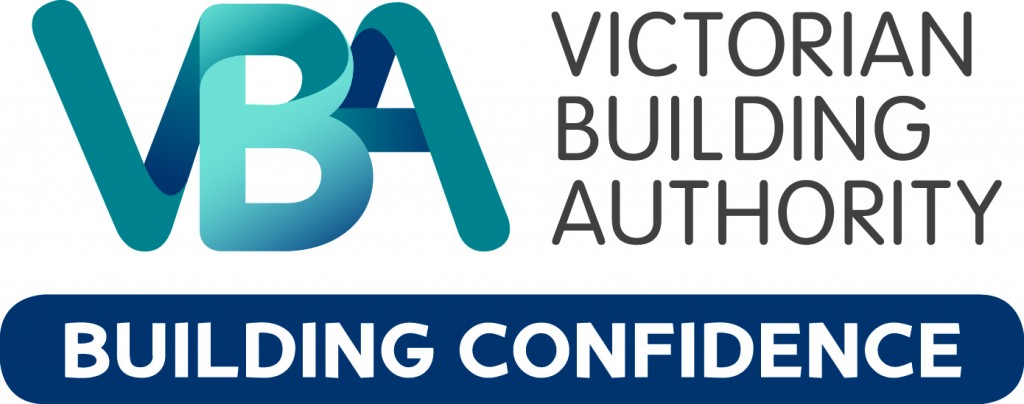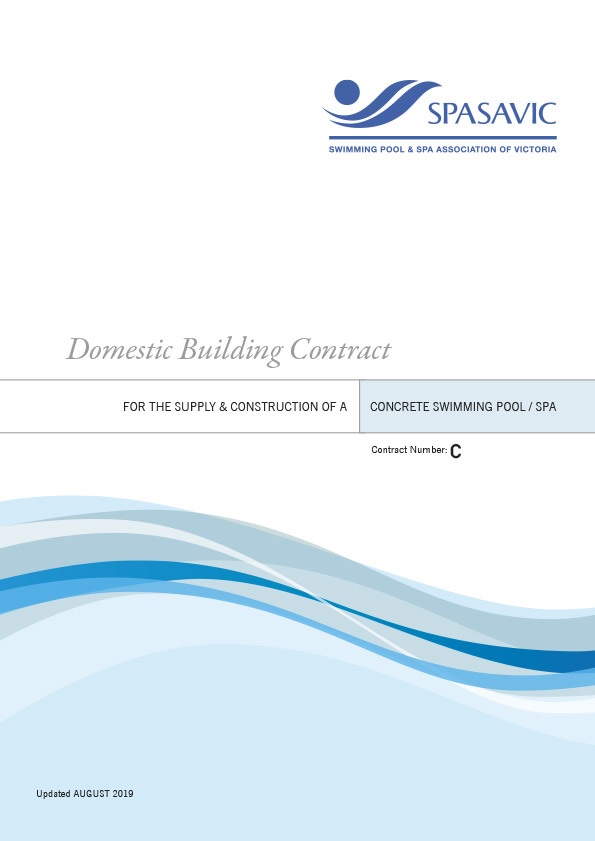Buyer Beware: Kit Pools and Owner Builders - Traps For Consumers
 Kit pools installed by unregistered pool builders can leave homeowners with expensive legal bills, warranty, OHS and insurance issues.
Kit pools installed by unregistered pool builders can leave homeowners with expensive legal bills, warranty, OHS and insurance issues.
"The most effective way consumers can protect their financial and legal position is to use a builder who is registered with the Victorian Building Authority(VBA), specifically in the categories of 'Domestic Builder Unlimited' or 'Domestic Builder – Limited Swimming Pools’, SPASAVIC CEO Chris Samartzis said. “The best way to ensure a stress-free experience is to use a SPASAVIC Pool Builder Member."
There are three essential questions prospective pool or spa owners should ask:
1. Are you a Registered Building Practitioner?
2. Are you a SPASAVIC Pool Builder Member?
3. Do you use a SPASAVIC Pool Construction Contract?
Unregistered and inexperienced pool builders can talk unknowing homeowners into accepting all of the responsibility for building faults or structural failures of a pool or spa by getting them to become an ‘owner builder’.
This means that the builder avoids having to provide domestic building insurance for works over $16,000 - which is mandatory for all registered pool builders.
 In order to contract a Registered Building Practitioner to undertake work, you must be provided with a major domestic building contract for work over $10,000. For work over $16,000, the Registered Building Practitioner must also provide you with Domestic Building Insurance (DBI)[1].
In order to contract a Registered Building Practitioner to undertake work, you must be provided with a major domestic building contract for work over $10,000. For work over $16,000, the Registered Building Practitioner must also provide you with Domestic Building Insurance (DBI)[1].
"It’s usually only when a homeowner attempts to sell their home, within six and a half years of the pool being built or renovated, that they find out they are legally bound to provide domestic building insurance before the sale can go ahead[2]." Mr Samartzis said. "What most ‘owner builders’ don't realise is that they become liable for issues, such as damage to a neighbour's property, or a worker being injured on site. This could see the ‘owner builder’ entangled in expensive legal battles for compensation."
Pool Barriers Are Law
The VBA advises that a building permit is required for all pools or spas with a depth of water of more than 30cm, regardless of whether construction is being undertaken by an ‘owner builder’ or not. The building permit application must also include details of the proposed safety barriers.
Following building completion of a pool or spa, and installation of a permanent barrier, the relevant building surveyor must inspect the work and - if compliant – issue a Certificate of Final Inspection for the building permit and a Certificate of Pool and Spa Barrier Compliance And Council Registration For the Safety Barrier[3]. Homeowners must ensure they receive these certificates before using their pool or spa, in order to keep their family safe."
Here are five important steps homeowners should take before proceeding with the installation of a pool or spa:
1. Get a building permit from a registered building surveyor. Check with your local council or use the Find a practitioner link on the VBA website.
2. Request to see the builder's registration card from the VBA, and search for yourself on the Victorian Building Authority's website or call 1300 815 127.
3. Ask to see a copy of the builder's domestic building insurance policy for the work and also the public liability insurance policy.
4. Check if the builder is a Pool Builder Member of SPASAVIC. All SPASAVIC Pool Builder members must have the correct insurances and be registered with the VBA.
5. Read SPASAVIC’s Consumer Advice and Fact Sheets
Always choose a SPASAVIC Member when you build, renovate or service a pool or spa!
SPASAVIC Fact Sheet 3 - Legislation, Regulation & Contracts
[1] https://www.vba.vic.gov.au/consumers/home-renovation-essentials/insurance-building-plumbing-work
[2] https://www.dbi.vmia.vic.gov.au/builders/owner-builders
[3] https://www.vba.vic.gov.au/consumers/home-renovation-essentials/end-of-project and https://www.vba.vic.gov.au/consumers/swimming-pools/inspections-and-compliance
7 Signs That Your Builder is Unregistered
 The Victorian Building Authority has released its top seven warning signs of an unregistered builder.
The Victorian Building Authority has released its top seven warning signs of an unregistered builder.
Building a home, renovating your property or installing a swimming pool or spa will likely be one of the biggest investments a home owner will ever make.
To protect themselves from rogue practitioners, the VBA urges home owners to do their research and develop good communication lines with their builder.
VBA Acting Chief Executive Officer Murray Smith said it was also important to understand the role of the building surveyor and the VBA before starting the construction process.
“It is only through your relationship with your builder or building surveyor that you will fully understand how your project is going,” Mr. Smith said.
“Seek regular updates, take photographs and ensure any variations to plans are agreed in writing by you and the practitioner.”
The VBA’s top 7 warning signs of an unregistered builder
- No results are found when you type the builder’s name into the VBA’s online ‘Find a Practitioner’ tool
- The builder does not ask you to enter into a written contract before the project starts
- They ask for too much money up-front or at each set payment stage. By law in Victoria, a deposit can be no more than five per cent of the total project cost (projects over $20,000)
- They are not prepared to tell you about or show you what homes they have recently built
- They cannot or will not show you their VBA ID card
- The builder is not a member of an industry body
- You are not given a copy of the builder’s domestic building insurance policy or a certificate of currency covering your property before construction
Always Choose a SPASA Member!
SPASA Members are industry professionals and are at the forefront of the industry in regards to their experience, professionalism and reputation.
Bound by the Association’s strict Code of Ethics, all SPASA members have demonstrated a history of successful, ethical trading and knowledge appropriate to their membership category.
Look for the SPASA member logo to ensure you are dealing with an industry professional.
The first questions you should always ask are:
“Are You A Registered Building Practitioner?”
“Are you a SPASA Pool Builder Member?”
“Do you use a SPASA Pool Construction Contract?”
You can Find a SPASA Member HERE
For more information visit the SPASA Victoria website
VBA Warns Against Web DIY Videos
 Do-it-yourself web videos appeal to the home handy person but could be providing advice that leads to poor and even illegal outcomes.
Do-it-yourself web videos appeal to the home handy person but could be providing advice that leads to poor and even illegal outcomes.
The Victorian Building Authority (VBA) warns that certain jobs around the home are not only best left to the professionals, but legally can only be done by someone who is registered or licensed to do the work.
Buyer Beware: Kit Pools & Unregistered Pool Builders
Following several member and consumer enquiries about the obligations of Owner Builders, the Swimming Pool & Spa Association of Victoria (SPASA) the sole industry peak body, urges consumers to closely read the following information in the lead up to the summer season.
Kit pools installed by unregistered pool builders can leave homeowners with expensive legal bills, warranty, OHS & insurance issues.
Kit Pool Insurance Trap For Consumers Who Engage Unregistered Builders
Kit pools being installed by inexperienced or unregistered pool builders can leave home-owners with expensive legal bills and insurance issues, the Swimming Pool and Spa Association of Victoria has warned.
